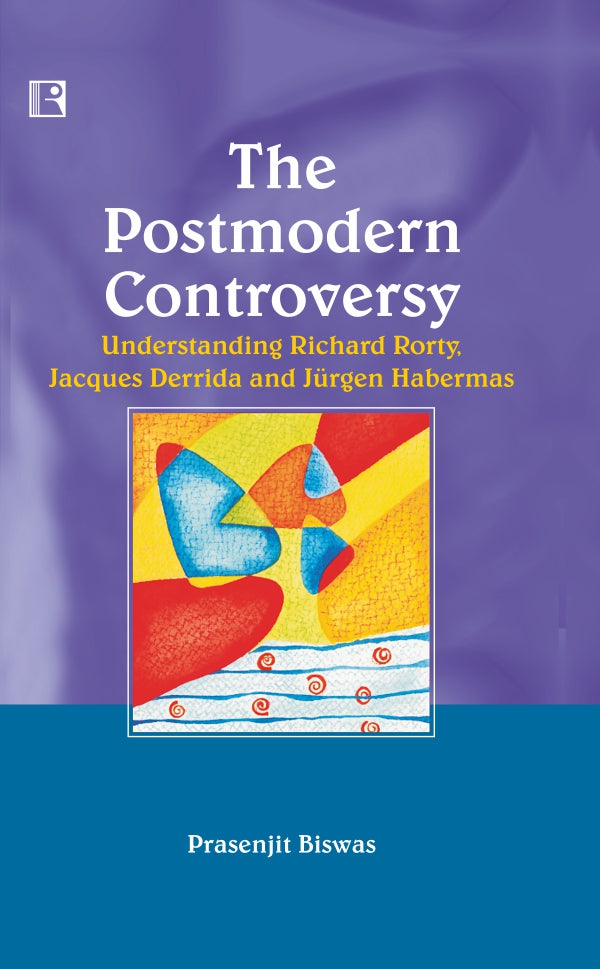The Postmodern Controversy: Understanding Rorty, Jacques Derrida, Jurgen Habermas
The Postmodern Controversy: Understanding Rorty, Jacques Derrida, Jurgen Habermas is backordered and will ship as soon as it is back in stock.
Couldn't load pickup availability
Genuine Products Guarantee
Genuine Products Guarantee
We guarantee 100% genuine products, and if proven otherwise, we will compensate you with 10 times the product's cost.
Delivery and Shipping
Delivery and Shipping
Products are generally ready for dispatch within 1 day and typically reach you in 3 to 5 days.
Book Details
-
Author: Prasenjit Biswas
-
Publisher: Rawat Publications
-
Language: English
-
Edition: 2005
-
ISBN: 9788170338611
-
Pages: 190
-
Cover: Hardcover
-
Sale Territory: India
About the Book
This thought-provoking book delves into some of the most crucial issues of our time, focusing on the instability of meanings and the challenges posed by contemporary practices. The text explores the so-called postmodern moment, engaging with the works of Richard Rorty, Jacques Derrida, and Jürgen Habermas. These intellectual figures are presented in a critical dialogue, examining their contributions to the understanding of philosophy and non-philosophy in the context of our fragmented world.
The book revolves around the central controversy: Do Rorty, Derrida, and Habermas converge at the infinite, or do their ideas cancel each other out in a nihilistic pursuit of freedom and otherness? Rorty and Derrida, by rejecting traditional epistemology and embracing radical undecidability, set the stage for a deconstruction of meaning. Meanwhile, Habermas calls for a more structured approach—seeking a neutral ground for reason that can foster inter-subjective agreement across borders.
Through a careful examination of these thinkers, the book highlights the clash between two opposing goals: one that champions openness and the other that insists on reason and norms. Rorty advocates for a culture of openness, grounded in the human values of the North American community, while Derrida proposes a more radical, deconstructive approach. Habermas, in contrast, advocates for a universal rationality aimed at achieving global consensus.
This analysis, however, is not just a critique of postmodern thought but an invitation to engage with the subtleties of these theories, offering an open-ended expectation of mutual understanding. In embracing the notion of ‘freeplay,’ the book contends that a fluid and open-minded approach can overcome the closures of thought and imagination that limit intellectual exploration. A must-read for anyone interested in postmodern philosophy, critical theory, and the complex intersections between knowledge, truth, and society.





